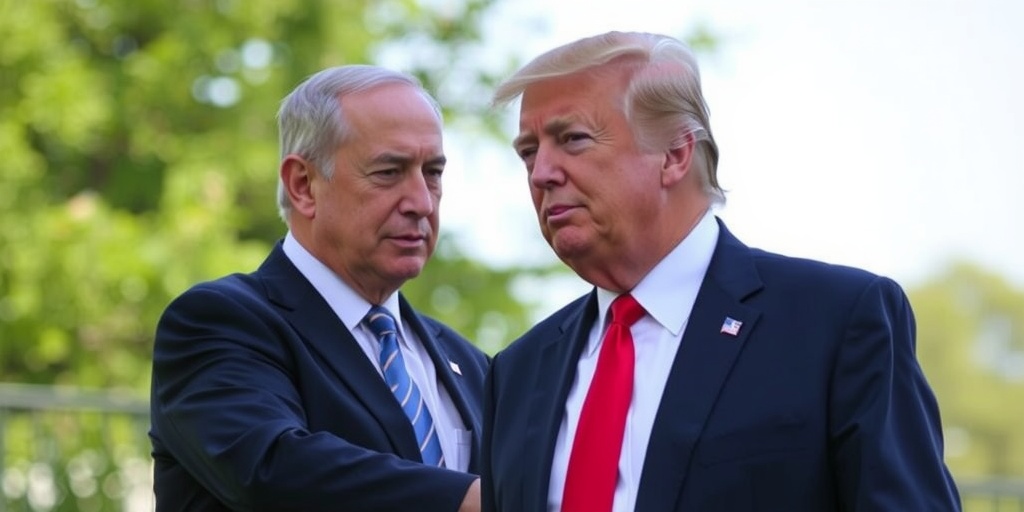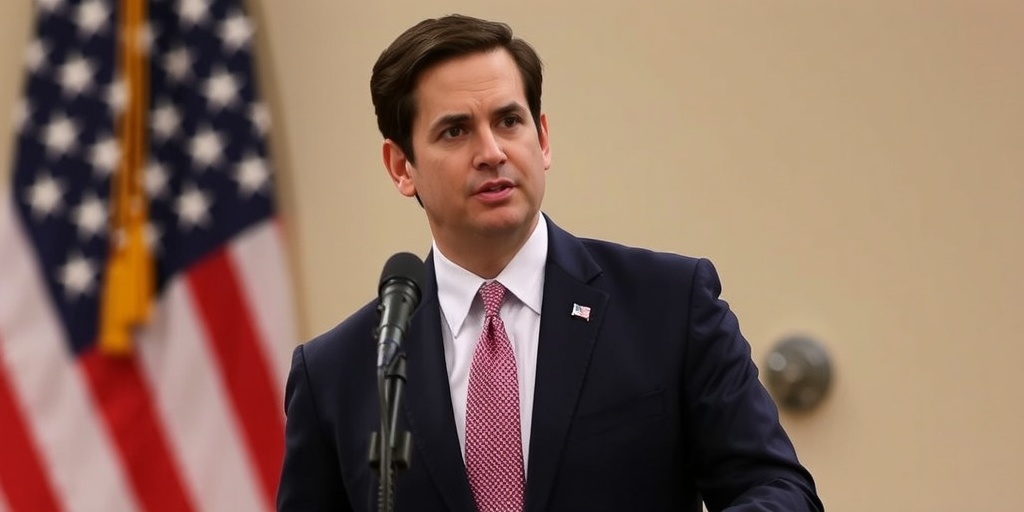Now Reading: Netanyahu Visits Washington as Trump Remains Key Ally
-
01
Netanyahu Visits Washington as Trump Remains Key Ally
Netanyahu Visits Washington as Trump Remains Key Ally

Netanyahu Reunites with Trump: A Shift in U.S.-Israel Relations
In a time of geopolitical tension and shifting allegiances, Benjamin Netanyahu, the Prime Minister of Israel, finds himself once again engaging with a familiar ally: former President Donald Trump. This meeting comes after a period in which Netanyahu navigated a more cautious relationship with President Joe Biden’s administration, characterized by tension and criticism over Israel’s military actions and judicial reforms.
Before Obama took office in 2009, Netanyahu made a surprising call to Israeli diplomat Alon Pinkas asking for insight into the Democratic mindset. “I speak Republican and you speak Democratic, and I need the intermediary,” Netanyahu said, highlighting his longstanding alignment with the Republican Party. This perspective has resurfaced as he prepares to engage with Trump, who has openly supported Netanyahu’s controversial policies.
The contrast between the two administrations is stark. Biden has maintained a cautious stance regarding Netanyahu’s military operations in Gaza, advocating for humanitarian considerations and restraint. In contrast, the Trump administration is perceived as unencumbered by such reservations. Commenting on the shift, Natan Sachs, a senior fellow at the Brookings Institution, stated, "They are unshackled. A lot of concerns that the previous White House kept making about humanitarian aid, about limiting civilian casualties, these concerns are just not voiced anymore."
A pressing topic during their upcoming discussions is the significant tariffs imposed by the Trump administration, which have affected the Israeli economy. Netanyahu, indicating the importance of this meeting, mentioned, “I can tell you that I am the first international leader who will meet with President Trump on the issue, which is so important to the Israeli economy.” The talks are anticipated to cover a range of issues, including the ongoing war in Gaza, Israel-Turkey relations, Iran, and the role of the International Criminal Court.
Biden’s relationship with Netanyahu has been long and complex. Once regarded as a close ally, Biden has grown increasingly frustrated with Netanyahu’s approach, particularly toward Israel’s judicial overhauls and its handling of the Gaza conflict. Reports indicate that Biden was less than pleased with Netanyahu’s actions following the October 7 terrorist attacks by Hamas, using strong language to express his disapproval.
At a moment when Biden was critical of Netanyahu’s perceived disregard for humanitarian impacts, Trump’s administration took a different approach. Trump’s advisers encouraged aggressive military action against Hamas, stating, “All those who seek to terrorize, not just Israel, but also the United States of America, will see a price to pay. All hell will break loose.” This heavy endorsement of military actions underscores a significant shift toward a more militaristic U.S.-Israel relationship under Trump.
Further complicating matters is the ongoing tension surrounding the judicial system in both countries. Netanyahu has echoed Trump’s criticisms of judges perceived as obstructive, asserting that the justice systems have been weaponized against right-wing leaders. “When a strong right-wing leader wins an election, the leftist Deep State weaponizes the justice system to thwart the people’s will,” Netanyahu claimed. This ideological alignment provides a foundation for a cooperative relationship between the two leaders.
While the Trump administration has been lauded as more pro-Israel than Biden’s, it has not always been smooth sailing. Netanyahu’s public congratulatory message to Biden following the 2020 presidential election reportedly irked Trump. However, Netanyahu appears undeterred, as he assesses the advantages of aligning with a U.S. leader who has historically supported Israeli interests.
Trump’s first presidency significantly benefited Netanyahu’s agenda, marked by actions such as relocating the U.S. Embassy to Jerusalem and side-lining Palestinian concerns. These decisions resonated with Netanyahu’s right-wing base, who largely supported the administration’s approach.
In an audacious move, Trump has suggested that the U.S. should assume control of Gaza and displace the Palestinian populace, a proposal that has drawn widespread condemnation but found resonance among Netanyahu’s supporters. Observers note that this base’s approval of Trump grants Netanyahu unusual power during negotiations related to the ongoing conflict with Hamas.
As violence again escalates in Gaza, Netanyahu’s connection to Trump may become increasingly consequential. Some analysts argue that Trump’s unpredictability could serve as leverage for Israel in these negotiations. With the conflict intensifying and the Biden administration adopting a different stance, the dynamics of U.S.-Israel relations are set to reshape the landscape of Middle Eastern diplomacy.
Ultimately, as Netanyahu prepares to meet with Trump, the implications of their discussions will extend far beyond their two nations, potentially influencing the broader geopolitical context surrounding the Israeli-Palestinian conflict and international relations in the region. Whether this meeting will lead to renewed conflict or a sustainable resolution remains to be seen, but one thing is certain: the stakes have never been higher.
Stay Informed With the Latest & Most Important News
Previous Post
Next Post
-
 01New technology breakthrough has everyone talking right now
01New technology breakthrough has everyone talking right now -
 02Unbelievable life hack everyone needs to try today
02Unbelievable life hack everyone needs to try today -
 03Fascinating discovery found buried deep beneath the ocean
03Fascinating discovery found buried deep beneath the ocean -
 04Man invents genius device that solves everyday problems
04Man invents genius device that solves everyday problems -
 05Shocking discovery that changes what we know forever
05Shocking discovery that changes what we know forever -
 06Internet goes wild over celebrity’s unexpected fashion choice
06Internet goes wild over celebrity’s unexpected fashion choice -
 07Rare animal sighting stuns scientists and wildlife lovers
07Rare animal sighting stuns scientists and wildlife lovers




















